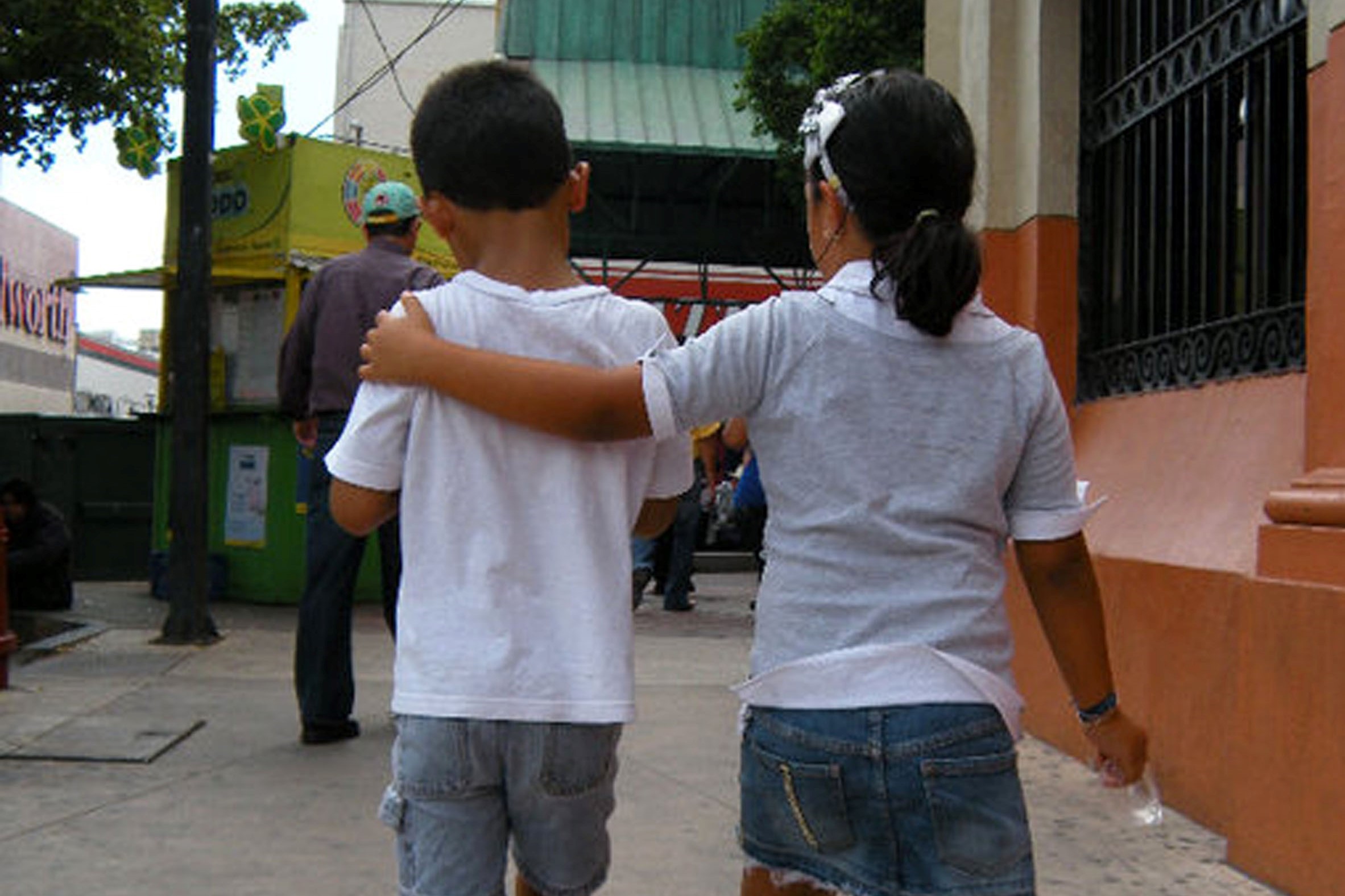Blog: Wellbeing of child carers in Mexico City
Professor Jean Grugel discusses her work on the diminishing health and wellbeing of child carers in Mexico City.

Image (modified) Niños caminando by Poncho Equihua; (CC BY 2.0)
by Jean Grugel
Feminist research has long drawn attention to the importance of women’s unpaid contribution to households and economies through caring for others, and the tiredness, loneliness, impoverishment and lack of respect they can experience as a result. But children also have caring responsibilities and are also depleted as a result. Based on fieldwork in Mexico City with young carers, social workers and policymakers, recent research in the European Journal of Politics and Gender with Susana Macias and Shirin M. Rai shows how the experience of being a young carer is shaped by age, income, whether children carry out other forms of work in and outside the home, and gender. Girls are more likely to do care work, but boys in households where there are no elder girls also provide care. We also discuss some of the harms this work entails for children including diminished health and wellbeing, loneliness, tiredness, anxiety and difficulties in education.
We also explore the limitations of cash transfer welfare programmes by examining their failure to address the needs of children who provide care within the family. Policymakers’ misperceptions of the experiences of young carers further limit the capacity of social policies to make a difference to the carers’ wellbeing. The article underlines the importance of the greater recognition of social reproductive work by poor children and adolescents, and of the intersectional depletion that they experience, both within social policy and in academic research.
Our key findings include the following:
- Children’s care work is every day as well as in ‘exceptional’ circumstances.
- The depletion that childcarers experience should be understood through the lens of intersectionality.
- The costs to childcarers are exacerbated because of weak and partial welfare systems.
- Recognising the social reproductive work of children/adolescents is an important step to ameliorate depletion.
Read the full article: Depletion, intersectionality and the limits of social policy: childcarers in Mexico City
Contact us
Interdisciplinary Global Development Centre
igdc@york.ac.uk
01904 323716
Department of Politics and International Relations, University of York, Heslington, York, YO10 5DD, UK
Twitter
Contact us
Interdisciplinary Global Development Centre
igdc@york.ac.uk
01904 323716
Department of Politics and International Relations, University of York, Heslington, York, YO10 5DD, UK
Twitter